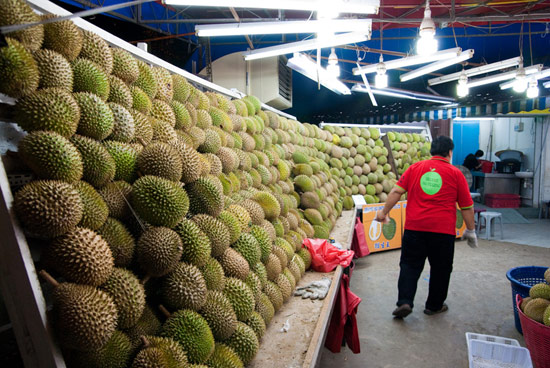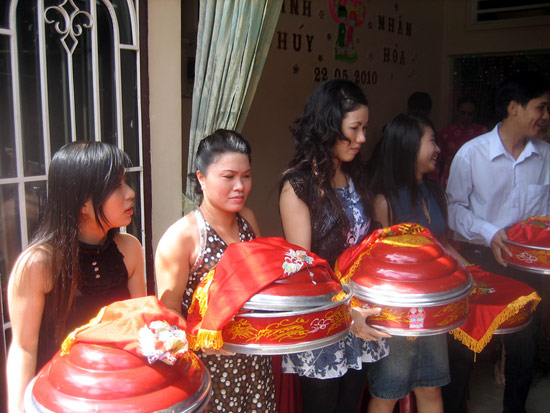Gift Giving
General
Vietnam’s Buddhist and Confucian values are expressed through modest, frugal gifts. Respect for one’s elders, the promotion of "face" (dignity in public), and the harmonizing of personal relations are all nurtured through giving and receiving. Major cultural and familial events are also vibrant present giving occasions. Unlike other Asian nationalities, the Vietnamese are not bashful about business gifts, although the threat of corruption restricts the value of items.
Presents are normally wrapped in bright colors symbolizing amity and good cheer. They are given and received with both hands to indicate care and gratitude. The recipient expresses thanks profusely, and usually puts the gift aside to open after the guest has departed. This saves "face" for both parties should the gift prove to be unsuitable.
Hospitality Gifts
When invited to someone’s home for an evening, Vietnamese typically bring a present for the hostess as thanks for her hard work preparing the meal. Candy (such as keo me xung peanut and sesame snacks), luxury fruit like durien, incense, and wine are all apposite. Also welcome are items that are useful around the home, such as cosmetics, lamps, framed pictures, and designer soaps. If the guest is from another country, items from his or her home region, such as delicacies or crafts, are prized by Vienamese. If the host has children in the home, small toys and sweets are highly appreciated.
Personal Gifts
By far the biggest gift-giving event in the Vietnamese calendar is Tết (New Year) when every Vietnamese person celebrates his or her birthday at once, as individual birthdays are not celebrated on their exact dates. Li xi (red envelopes filled with money) are given to children, the red color believed to augur good luck and repel evil ghosts. The amount of cash depends on how well-behaved the youngster in question has been over the past year. Mứt (dried candied fruits) are also exchanged during Tết.
At a traditional Vietnamese wedding, the groom’s family gives areca nuts, betel leaves, candies, cakes, and tea to the bride’s family. The matchmaker determines how these dowry gifts will be distributed between the bride’s family members. Close friends and relatives are also invited to the service and bring practical domestic presents in pairs, for giving single gifts is believed to prophesy a short-lived marriage.
At the birth of a baby, close companions and relatives take the mother health foods—a tradition that dates back to times of austerity. Toys, baby clothes, and gold bangles are occasionally donated to the infant.
Unlike in other cultures, Vietnam marks death with gift giving. During the funeral rite, the mouth of the deceased is held open so that loved ones can drop into it rice and coins—items that will be of use in the next incarnation.
The small Christian minority in Vietnam exchanges gifts at midnight on Christmas Day. Children typically receive toys and clothes while adults give one another candies and personal items.
Business Gifts
While lavish business gifts are usually frowned upon in case they imply corruption, humble, office-related objects bearing a corporate logo can be exchanged once a deal has been struck or during a business party. This is believed to cultivate the amicable relationships required for successful commerce. Due to the drinking culture of Vietnam, a bottle of whiskey is a favored present in industrial contexts, but is ordinarily only given to men. Foreigners can earn extra respect if they bring something not easily obtainable in Vietnam from their home country—this conveys a sense of cultural consideration. Business are normally presented at a colleague’s home or a restaurant in order to distance them from suspicions of bribery.
Taboos
Business gifts are seldom exchanged inside the office itself, lest accusations of bribery arise. Handkerchiefs are never given, for they symbolize an unhappy farewell. Black wrapping paper, yellow flowers, and chrysanthemums are all associated with death and thus avoided as gifts. Men give flowers only to women, and never to other men, for presenting flowers is thought to be a chivalrous gesture.
Article written for World Trade Press by Tom Sykes.
Copyright © 1993–2025 World Trade Press. All rights reserved.

 Vietnam
Vietnam 


